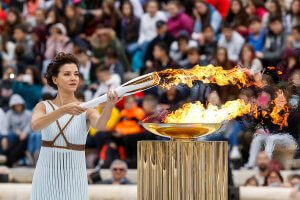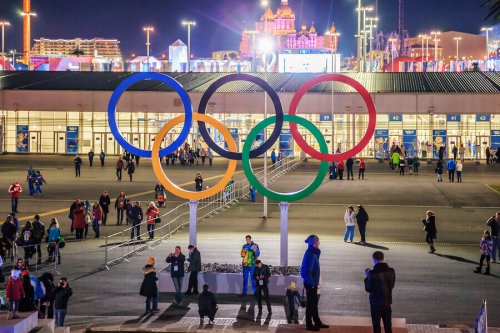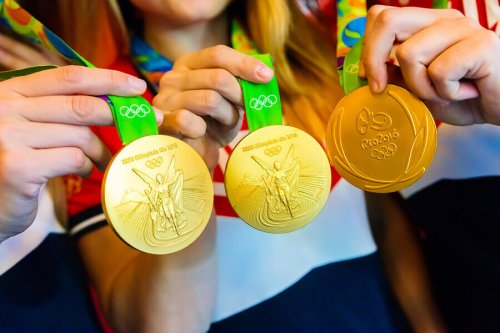What is the Olympic Charter?

The Olympic Charter is the governing document of the Olympic movement. In it, you’ll find fundamental principles of the Games. This document also contains the rules that govern this event. It describes everything from headquarter selection to the requirements for participation, punishments, and event sponsors.
The International Olympic Committee (IOC) created the Olympic Charter within the framework of the revival of the Olympic Games. It’s also undergone several changes over the years.
The members of the Olympic movement are associates of the IOC. These are the international federations, the national Olympic committees, and the commissions responsible for planning and organizing the Games. The Olympic Charter establishes the rights and obligations of each of these.
Who was the Olympic Charter written for?
First of all, you should know that this document is the “final word” on all matters regarding the Olympic movement. Within it, the IOC also establishes a regulatory international guide for everyone who wants to be a part of it. Specifically, it’s also a clear and detailed guide with rules for:
- The Olympic movement in general.
- The IOC itself.
- Admission of international federations by the IOC.
- International Olympic committees.
- The Olympic Games.
- Disciplinary, punitive procedures and also the resolution of conflicts as may arise.
Primary foundations
The Olympic Charter attempts to create a favorable environment for sports. In particular, it promotes the Olympic spirit as a way of life. It aims to contain principles based on ethics. It envisions sport as an overarching activity that combines body, mind, and spirit.

The organization considers sports performance to be an activity with a lot of power. They believe it can integrate the harmonious growth of humanity with their contributions to the search for a society with strong humanistic principles.
The IOC also identifies an urgent need in the Olympic Charter. This is the need to promote the education of the youth through sport. The greatest objective for them is to achieve a more peaceful and integrated world. They desire a world where all vestiges of discrimination are eradicated. In essence, they’re trying to promote equality of rights, solidarity, clean play, and joy.
The symbol of the modern Olympics is five interconnected rings. That represents each of the continents and highlights unity as one of the greatest values. All human beings have the right to practice a sport in accordance with their needs and capabilities.
In the field of sports, people have worked hard so that countries also include women in all their national Olympic teams. Certain countries strongly resisted this for many years due to cultural beliefs.
The obligations of the creators of the Olympic Charter
The IOC is the highest authority within the Olympic movement. It also has the responsibility to make sure that the Olympic Games stay up to date. Because of that, it has to follow up meticulously on the work of each participant. It also has to ensure that each Charter it publishes contains appropriate principles.

Thanks to various event and activity programs, the International Olympic Committee has also been able to commit to various promises. They’re committed to promoting, spreading, and encouraging the coordination, planning, and development of each sporting competition.
It also increases the reach that sports have. Aside from that, they cooperate with the development of action plans for technical development and sustain measures that encourage gender equality and access to all sporting structures.
With regard to ethical matters, the Olympic Charter also defines the measures that lead to clean play. Its actions are also meant to avoid health problems in athletes. This covers physical matters as well as the elimination of drug use among athletes in its anti-doping activities. For the IOC, combating violence and addictions is also a very important issue.
Failure to comply with the Olympic Charter
The IOC also punishes actions that are incompatible with the regulatory measures in this Olympic constitution. There’s a protocol involving analysis and evaluation for people and attitudes that result in diverse punishments. The consequences could be anything from a warning to a permanent or ultimate ban from Olympic events.
Many acts against the principles of the Olympics can also lead to an evaluation by the IOC. It could be something such as discrimination on the basis of race, sex, culture, or any other aspect of a person. On the other hand, a more recent example is that of athletes who test positive for doping.
The Olympic Charter is the governing document of the Olympic movement. In it, you’ll find fundamental principles of the Games. This document also contains the rules that govern this event. It describes everything from headquarter selection to the requirements for participation, punishments, and event sponsors.
The International Olympic Committee (IOC) created the Olympic Charter within the framework of the revival of the Olympic Games. It’s also undergone several changes over the years.
The members of the Olympic movement are associates of the IOC. These are the international federations, the national Olympic committees, and the commissions responsible for planning and organizing the Games. The Olympic Charter establishes the rights and obligations of each of these.
Who was the Olympic Charter written for?
First of all, you should know that this document is the “final word” on all matters regarding the Olympic movement. Within it, the IOC also establishes a regulatory international guide for everyone who wants to be a part of it. Specifically, it’s also a clear and detailed guide with rules for:
- The Olympic movement in general.
- The IOC itself.
- Admission of international federations by the IOC.
- International Olympic committees.
- The Olympic Games.
- Disciplinary, punitive procedures and also the resolution of conflicts as may arise.
Primary foundations
The Olympic Charter attempts to create a favorable environment for sports. In particular, it promotes the Olympic spirit as a way of life. It aims to contain principles based on ethics. It envisions sport as an overarching activity that combines body, mind, and spirit.

The organization considers sports performance to be an activity with a lot of power. They believe it can integrate the harmonious growth of humanity with their contributions to the search for a society with strong humanistic principles.
The IOC also identifies an urgent need in the Olympic Charter. This is the need to promote the education of the youth through sport. The greatest objective for them is to achieve a more peaceful and integrated world. They desire a world where all vestiges of discrimination are eradicated. In essence, they’re trying to promote equality of rights, solidarity, clean play, and joy.
The symbol of the modern Olympics is five interconnected rings. That represents each of the continents and highlights unity as one of the greatest values. All human beings have the right to practice a sport in accordance with their needs and capabilities.
In the field of sports, people have worked hard so that countries also include women in all their national Olympic teams. Certain countries strongly resisted this for many years due to cultural beliefs.
The obligations of the creators of the Olympic Charter
The IOC is the highest authority within the Olympic movement. It also has the responsibility to make sure that the Olympic Games stay up to date. Because of that, it has to follow up meticulously on the work of each participant. It also has to ensure that each Charter it publishes contains appropriate principles.

Thanks to various event and activity programs, the International Olympic Committee has also been able to commit to various promises. They’re committed to promoting, spreading, and encouraging the coordination, planning, and development of each sporting competition.
It also increases the reach that sports have. Aside from that, they cooperate with the development of action plans for technical development and sustain measures that encourage gender equality and access to all sporting structures.
With regard to ethical matters, the Olympic Charter also defines the measures that lead to clean play. Its actions are also meant to avoid health problems in athletes. This covers physical matters as well as the elimination of drug use among athletes in its anti-doping activities. For the IOC, combating violence and addictions is also a very important issue.
Failure to comply with the Olympic Charter
The IOC also punishes actions that are incompatible with the regulatory measures in this Olympic constitution. There’s a protocol involving analysis and evaluation for people and attitudes that result in diverse punishments. The consequences could be anything from a warning to a permanent or ultimate ban from Olympic events.
Many acts against the principles of the Olympics can also lead to an evaluation by the IOC. It could be something such as discrimination on the basis of race, sex, culture, or any other aspect of a person. On the other hand, a more recent example is that of athletes who test positive for doping.
All cited sources were thoroughly reviewed by our team to ensure their quality, reliability, currency, and validity. The bibliography of this article was considered reliable and of academic or scientific accuracy.
- Um.es. 2004. Comité Olímpico Internacional. Carta olímpica. Extraído de: https://www.um.es/documents/933331/0/CartaOlimpica.pdf/8c3b36b2-11a2-4a77-876a-41ae33c4a02b
- Web oficial Comité Olímpico Español. Extraído de: https://www.coe.es/2012/COEHOME2012.nsf/FHomeDemo?OpenForm
This text is provided for informational purposes only and does not replace consultation with a professional. If in doubt, consult your specialist.








